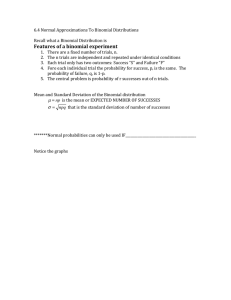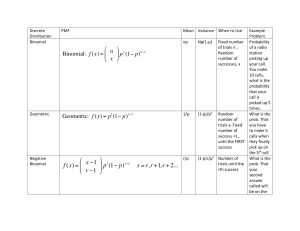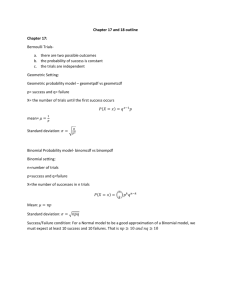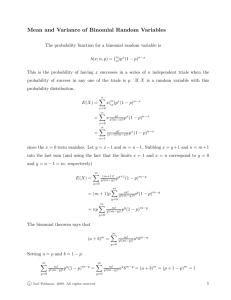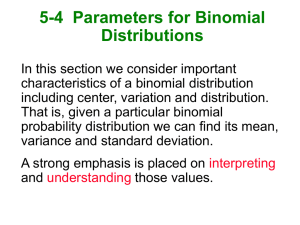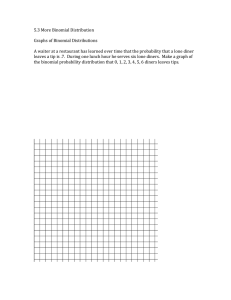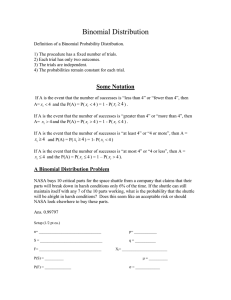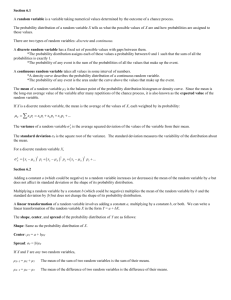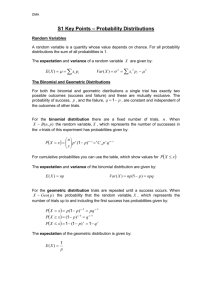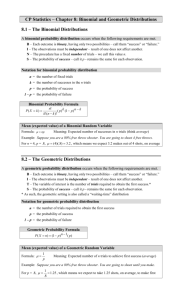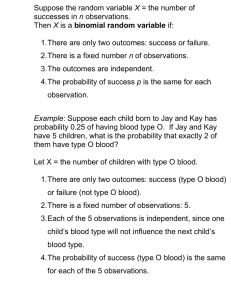C17 slides
advertisement
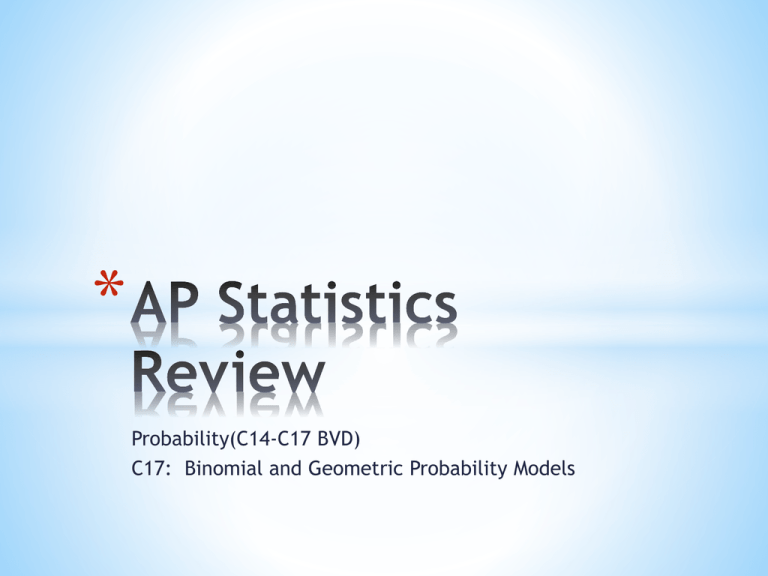
* Probability(C14-C17 BVD) C17: Binomial and Geometric Probability Models * Many probability questions on AP exam fit a binomial model * BINS * B – Binary? Outcomes can be defined as success/fail. * I – Independent? Knowing result of one trial does not effect result of another trial * N – Number? Number of trials n fixed in advance * S – Success Same? Probability of success (p) is the same for each trial. * X = number of successes in n trials * P(X=x) = nCx (px) (1-p)n-x * Mean µ = np * Standard deviation σ = sqrt(npq) * Notation: Binom(n,p) * Binompdf(n,p,X) * Binomcdf(n,p,X) – up to X successes * Complement rule (1- opposite) very handy * See page 331-332 for example * * Many probability questions on AP exam fit a geometric model * BITS * B – Binary? Outcomes can be defined as success/fail. * I – Independent? Knowing result of one trial does not effect result of another trial * T – Trials? Asking how many trials until success * S – Success Same? Probability of success (p) is the same for each trial. * * X = number of trials until success * P(X=x) = (1-p)x-1p * Mean µ = 1/p * Standard deviation σ = sqrt(q/p2) * Notation: Geomet(n,p) * Geometpdf(p,X) * Geometcdf(p,X) – 1st success on or before trial x * Complement rule (1- opposite) very handy * See page 328 for example * * Technically I in BINS or BITS is not met when in a sampling situation – when you draw from a finite population, the probability of the next event changes slightly (think of drawing Ace then Ace in a deck of cards) * However, if the sample is smaller than 10% of the population, the probabilities change slightly enough that they are almost as if they didn’t change at all. * So: 1 0 % C o n d i t i o n – if sample is < 10% pop, we can still use Binomial/Geometric probability models and procedures * *A Binomial model is approximately Normal if we expect at least 10 successes and 10 failures *(np and np ≥ 10) *If that is true, use N(µ,σ) instead of Binom(n,p,X) with Mean µ = np and Standard deviation σ = sqrt(npq) *C6 again! *
